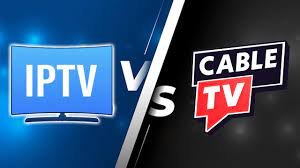Are you tired of paying exorbitant cable bills? Looking for a more affordable and flexible alternative? If so, you might be considering the switch from cable TV to IPTV. In this article, we will compare IPTV and cable TV to help you make an informed decision.
What is IPTV?
IPTV stands for Internet Protocol Television, which delivers television programming over the internet instead of traditional terrestrial, satellite, or cable formats. With IPTV, you can stream live TV channels and on-demand content using an internet connection.Advantages of IPTV
1. Cost-Effective: One of the major advantages of IPTV is its affordability. Unlike cable TV, which often comes with expensive bundled packages, IPTV allows you to choose and pay only for the channels you want to watch.2. Wide Range of Channels: IPTV offers a vast selection of channels from all around the world. Whether you enjoy sports, movies, news, or documentaries, IPTV has something for everyone.3. On-Demand Content: In addition to live TV channels, IPTV also provides access to a wide range of on-demand content. You can watch your favorite shows and movies whenever you want, without having to wait for them to air.Disadvantages of IPTV
1. Internet Dependency: Since IPTV relies on an internet connection, a stable and high-speed internet connection is essential for uninterrupted streaming. If your internet service is unreliable or slow, you may experience buffering issues.2. Technical Setup: Setting up IPTV requires some technical knowledge. You need to have a compatible device (such as a smart TV or IPTV box), a reliable internet connection, and an IPTV subscription.What is Cable TV?
Cable TV, also known as traditional television, is a system that delivers television programming through coaxial cables. It typically requires a cable box or a satellite dish to access channels.Advantages of Cable TV
1. Reliable Reception: Cable TV provides a reliable reception and minimal disruptions, even during adverse weather conditions. Unlike IPTV, cable TV does not rely on internet connectivity.2. Ease of Use: Cable TV is user-friendly and does not require any technical setup. You simply connect your TV to the cable outlet, and you are ready to watch your favorite shows.Disadvantages of Cable TV
1. Limited Channel Selection: Cable TV packages often come with predefined bundles of channels. If you want access to specific channels, you may need to subscribe to additional packages, which can be costly.2. Higher Costs: Cable TV subscriptions can be expensive, especially when you consider the additional costs of equipment rental and premium channel packages.Which is the Best Choice for You?
The choice between IPTV and cable TV ultimately depends on your preferences, budget, and internet connectivity. If you are looking for cost-effective and customizable options, IPTV might be the best choice for you. On the other hand, if you prioritize reliability and a wide range of channels, cable TV might be a better fit.Before making a decision, consider your internet speed, the availability of the channels you want to watch, and the overall cost. You can also opt for a hybrid solution, combining both IPTV and cable TV services to enjoy the benefits of both.Conclusion
IPTV and cable TV each have their own advantages and disadvantages. It is important to weigh these factors and consider your individual needs before making a switch. Whether you choose IPTV or cable TV, make sure to do thorough research and select a reputable provider to ensure a seamless viewing experience.